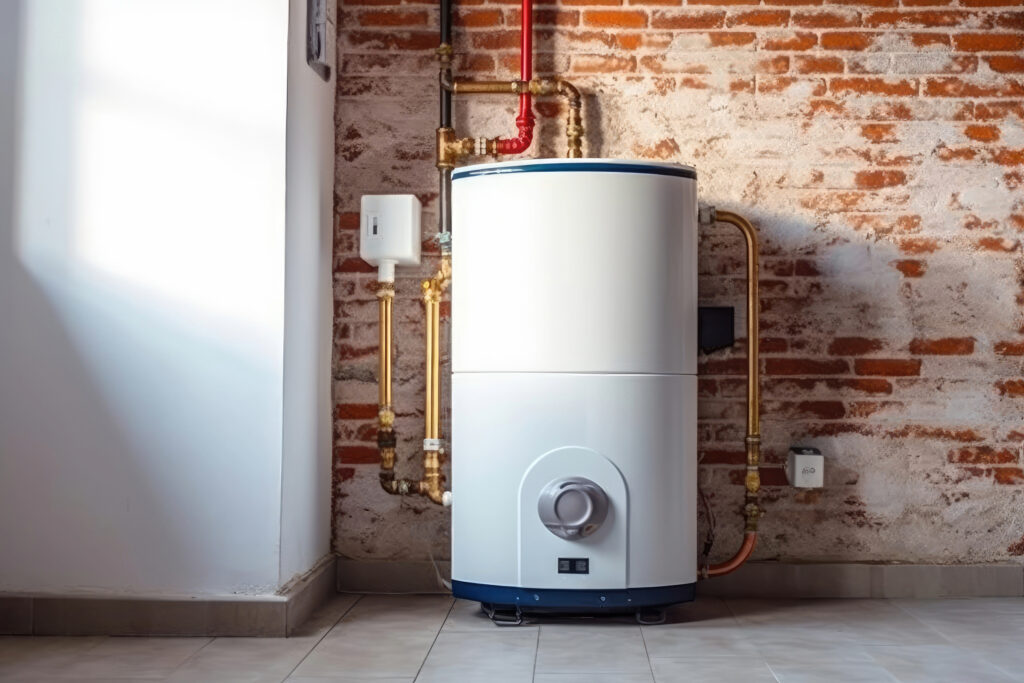A leaking water heater is a significant concern for any diligent homeowner. This is because it not only increases water bills but can also cause substantial water damage to your home. If you find yourself facing this issue, you undoubtedly want a swift resolution. That’s what we are here for! At Huber Heights Plumbing & Drain, our experienced team is ready to guide you in identifying the cause of your leaking water heater.
Before we dive in, your safety is paramount! Always remember to power off the unit before starting any troubleshooting.

Number 1: Loose Cold or Hot Water Inlet and Outlet Connections
One of the primary causes of a water heater leak is loose hot or cold water inlet and outlet connections. These connections tend to loosen over time due to regular wear and tear. Consequently, water might leak out from these loose connections, which can show up as a tiny puddle around the heater’s base or even dripping from the pipes.
To address this issue, inspect the connections around your water heater. If you notice any water, the likely cause could be loose connections. A simple twist of a wrench can often resolve the problem, but be careful not to overtighten, as this could exacerbate the situation.
Number 2: Defective Pressure Relief Valve
Another potential culprit of a water heater leak situation is a malfunctioning pressure relief valve. This valve’s essential function is to vent out excess pressure within the tank. However, if it fails to perform its duty, it can lead to water escaping.
To determine if the valve is the issue, gently lift the lever. If water flows out, the valve is functioning. However, if it continues to leak after you release it, this indicates it may need replacement.
Number 3: Temperamental Temperature & Pressure Relief Valve
Just like other valves, the temperature and pressure (T&P) relief valve can be a potential source of leaks. Tasked with regulating your water heater’s temperature and pressure, a malfunctioning or loose T&P valve could lead to issues. A leaky T&P valve may indicate excessively high water temperature or dangerously high pressure within the tank.
If you suspect the T&P valve is the issue, closely inspect the area around the valve for any signs of moisture. If you notice dampness or water, it may be time for a replacement.
Number 4: Leaky Inlet Valve
The inlet valve, acting as the gatekeeper for cold water flow into your water heater, is a common culprit behind water heater leaks. If compromised or improperly sealed, this valve can allow water to escape. Typically, a leaking inlet valve results in water pooling at the heater’s base.
To troubleshoot, examine the inlet valve for any signs of damage or wear. A little tightening or a replacement might be necessary to ensure optimal performance.

CONTACT a Professional Plumber:
If after completing these simple troubleshooting exercises your water heater continues to leak, it’s time to bring in a professional plumber. Some issues may be too complex for DIY repairs. A seasoned plumber can expertly diagnose the problem and propose a professional solution. This might include part replacements, rectifying internal tank issues, or even recommending a brand-new water heater.
When it comes to water heater leaks, postponing repairs can cause significant damage to the unit and potentially lead to water damage. If you’re unable to identify the issue on your own, it’s crucial to hire a professional plumber.
Our team of proficient experts is always on standby to assist in maintaining a safe and comfortable home for you. Call Huber Heights Plumbing & Drain today at (937) 764-3381, or schedule an appointment online now by clicking here!




